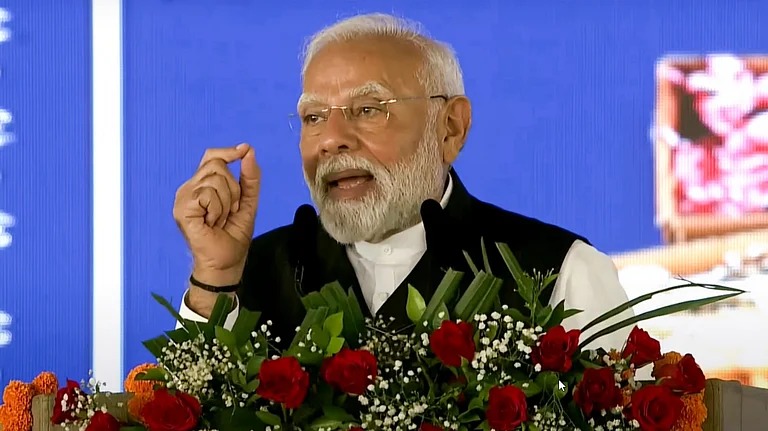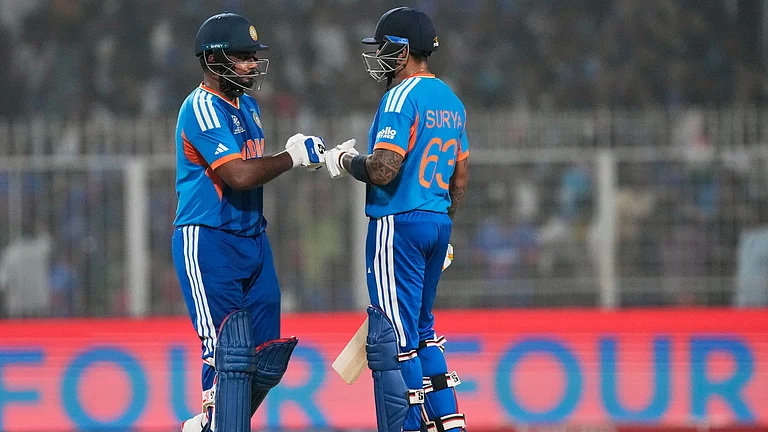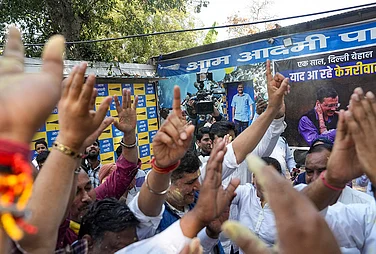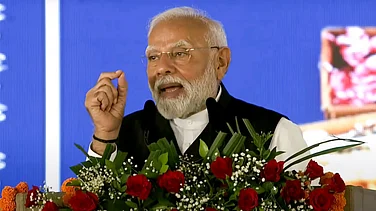While comparing with another woman, a colleague of mine told me to my face, “ঐ মহিলাটি আপনার থেকেও খতরনাক!” (The woman is more dangerous than you) This is the epithet a strong, opinionated woman always receives everywhere, be it in the office room, teachers' room, cushy corporate meeting halls or dining rooms. It's a strong woman's ornament in a patriarchal society.
For me, I am used to epithets like khatarnak (dangerous), quarrelsome, bold, and witch. My ex-husband often blamed me for the bad marriage — he used to allege that I had bewitched him into marrying me.
Every strong woman who is a misfit would have stories to share of being called names. I can relate to incidents in my village. When a woman finds herself in the vortex of depression mainly due to domestic violence, people say, জিনে ধরিছে! (She has been caught by a Djinn, the Islamic version of ghosts or witch) and the Maulvis or Imam sahibs (priests) are called and they either beat the women with brooms or put মানা কচু (Alocasia mycorrhizas) in their ears or vagina. And women would shout hell due to a fiery burning sensation the arum causes and become unconscious and even die. And the Maulvi would boast and show the glass bottle that he has put the Djinn in — a very common sight.
In today's times, we the misfit women are chastised for being misfits or witches through unequal workloads, unsavoury WhatsApp forwards, misogynist jokes about us, and various name-callings. In modern times, strong independent women are the witches who might not get killed by Maulvis but are harassed and dehumanised by our bosse, colleagues, and husbands. So it seems right when Mone Chollet's book, In Defence of Witches, the Legacy of the Witch Hunts and Why Women Are Still on Trial, begins with the lines from the W.I.T.C.H (Women’s International Terrorist Conspiracy from Hell) manifesto, New York, 1968.
There is no “joining” WITCH.
If you are a woman
and dare to look within yourself,
you are a Witch.
When people heard the decision of my divorce, the first reaction was ভূতে ধরিছে নাকি? (Have you been caught by the witch?) Thus a woman's decision or her choice is delegitimised.
And every act of transgression of imposed prejudices and belief systems is termed an abnormality and thus is seen as the work of witches. And for patriarchy, women without marriage and children are ‘abnormal’ and crazy. This concept is so deeply rooted in the patriarchal psyche whose carrier can be both male and female that even in a CNN programme, a member of the audience asked Gloria Steinem, “You are one of the primary causes of the downfall of our beautiful American family and society today. A couple of questions. I’d like to know if you’re married… If you have children.”
In Defence of Witches, Chollet mentions Swedish novelist Mare Kandre's work, Quinnan och Dr. Dreuf (The Woman and Dr. Dreuf) where the eminent —and transparently anagrammatized— gynecologist recommends that in order to calm the torments exhausting his patient’s delicate intellectual capacities, she should try the universal remedy of motherhood, known for its “great sanctity” and its “purifying action upon the female psyche”. He almost falls out of his armchair when the young flibbertigibbet replies that she doesn’t want children, saying:
“My dear young lady, ALL women want them! […] for certain reasons, woman is and generally remains broadly unaware of her feelings, of her desires and of her actual needs. […] her true feelings must, in general, be interpreted by an analyst of my calibre so that the woman is not left to be completely led, even swallowed up by her feelings, so that she doesn’t altogether miss her vocation, the source of the disorder and thereby at the root of the most complete chaos thus far experienced in the civilized.”
Having children and a secure marriage make a woman a bit safe from being called witches and becoming victims of witch-hunts. A single woman without children and a marriage and with independence has always been a threat to society and these women are often called the devil, the emblem of witch. Chollet writes, “Who is this Devil, who, from the fourteenth century onward, in the eyes of powerful European men, began to loom behind the figure of every female healer, every sorceress, every women who was slightly too forward or too much of a stirrer, to the point that they became a mortal threat to society? What if this Devil were in fact independence?”
Such is the fear of strong, bold woman that even a woman of Hilary Clinton’s stature was demonised in the 2016 US presidential election as a witch, with her opponents naming her The Wicked Witch of the Left.
Branding strong women opponents as witches and thus bringing upon them the persecution under witch-hunting comes to us from ancient times. Chollet writes, “A woman who is self-assured, who asserts her opinions, her desires and dislikes is very swiftly written off as a harpy, a virago, by both her partner and her peers.”
In India, childless, single women living at the edge of villages or in ghettos are often hunted in the name of witches. Since 2000, more than 2,500 women have been killed after being branded as a witch, according to the National Crime Records Bureau (NCRB). Chollet has also highlighted the reasons for why this happens, “If the witch-hunts targeted older women, it is likely because they displayed an unbearable degree of confidence. Confronted by their neighbours, by priests or pastors, even before judges and torturers, these women talked back.”
What, then, is the way forward? For me, for us who reject to be conformists, who own their moods and choices, perhaps the answer lies in Anne Sexton’s poem Her Kind:
I have ridden in your cart, driver,
waved my nude arms at villages going by,
learning the last bright routes, survivor
where your flames still bite my thigh
and my ribs crack where your wheels wind.
A woman like that is not ashamed to die.
I have been her kind.
It is our turn, dear women, to put all the Maulvis in their bottles and throw them deep into the ocean of no return. Maybe that's why Chollet has ended her book with the chapter Turn Upside Down!, concluding the book with these words:
“Turning the world upside down is no small undertaking. But there can be great joy—the joy of audacity, of insolence, of a vital affirmation, of defying faceless authority—in allowing our ideas and imaginations to follow the paths down which these witches’ whisperings entice us. Joy in bringing into focus an image of this world that would ensure humanity’s well-being through an even-handed pact with nature, not by a Pyrrhic victory over it—this world, where the untrammeled enjoyment of our bodies and our minds would never again be associated with a hellish sabbath.”


























